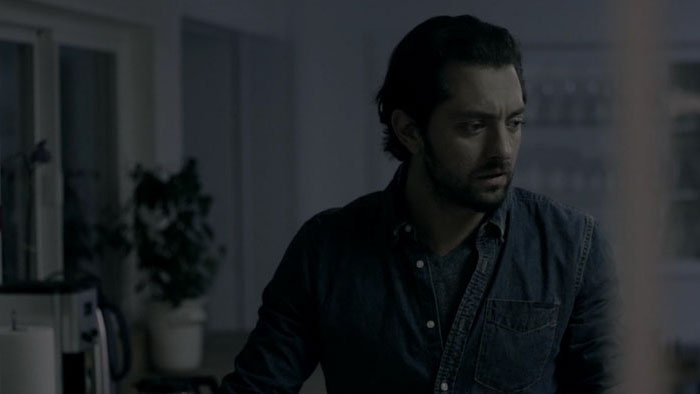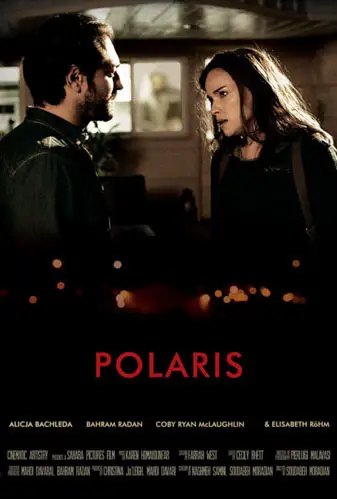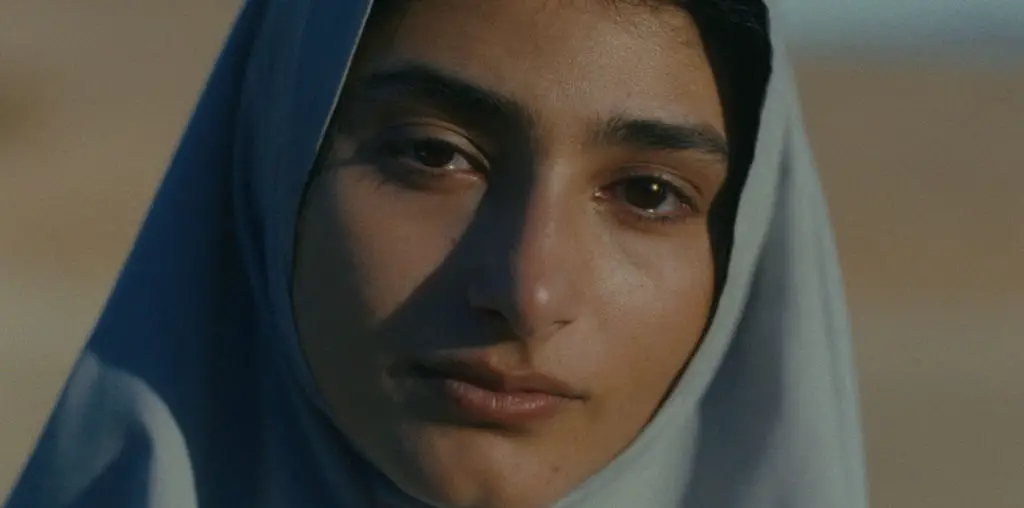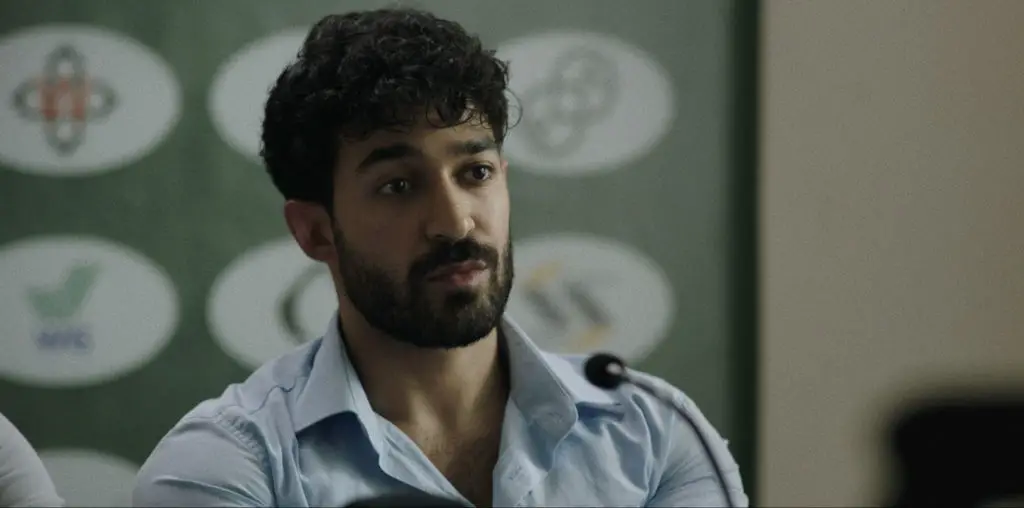
In Polaris, director/co-writer Soudabeh Moradian gives us the tale of war photographer Baran (Alicja Bachleda), who is in the U.S. looking for her adopted son. She believes he was sent to the States from Iraq after she was hospitalized following an explosion. She has come with her husband, Poorya (Bahram Radan). Poorya hates it here and has determined they will go home to Iran, where their families live. Baran is not interested in returning to Iran. She has PTSD from the explosion and wants to stay away from the Middle East. She is also determined to find the boy. Poorya is not even convinced the son exists, suggesting Baran hallucinated him as a result of her traumatic brain injury.
On the night they are discussing returning to Iran, they are trying to get home to their apartment but are prevented by a police barricade on their street at an active crime scene. They are fatefully taken indoors by a neighbor named Daniel (Coby Ryan McLaughlin). Daniel is in his own difficult situation. He’s a composer who is trying to finish music on a deadline, and his own wife Christine (Elisabeth Röhm) has gone on a trip without him. She is disappointed and angry that he bails on their trip at the last minute.
Poorya (Bahram Radan) is an overbearing, toxic a*****e who abrasively torments his wife about his misery at being in the United States. He is also in deep financial trouble, only just having managed to scrape together enough money to buy tickets to Tehran. He attributes all their problems to his wife being mentally ill after the trauma she experienced in Iraq.

“…a woman looks for her adopted son in the U.S., while her husband insists they return to Iran…”
The couple are at first grateful for Daniel’s hospitality, but as the night wears on, the situation takes a dark turn. Not everything is as it seems, and secrets are revealed through twists and turns in the third act. While the narrative is ostensibly about the interplay between these three characters, the theme of toxic masculinity drives it at a fundamental level. Daniel and Poorya are local avatars of poor male behavior, but on a larger scale, the damage caused by governments and wars in the Middle East is also driven by patriarchal suppression and disregard for women. In the end it comes down to male power bent on controlling women.
Polaris is paced like a stage play, which makes sense given that the script was penned by playwright Naghmeh Samini. This film would translate directly to the stage. There is an interesting use of home security camera perspectives to occasionally pull the viewer back and give the sense of being a voyeur as this drama plays out. Action is de-emphasized in favor of emotional experience, and most of the film is shot in semi-darkness to reflect the gloom and confusion of the characters.
Moradian creates a thoughtful, moody, and often quiet meditation here on Baran’s struggles with everyone in her life. The performances are understated and powerful. One nitpick is that the brilliant Elisabeth Röhm is drastically under-utilized, having only a moment of screen time at the outset. Polaris is an enlightening look at the journey of one woman intent on following her own path despite the men in her life trying to manage her future.

"…a thoughtful, moody, and often quiet meditation"


